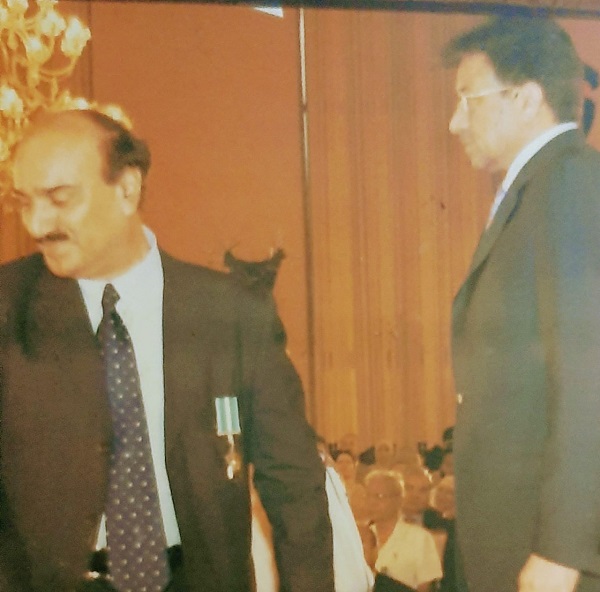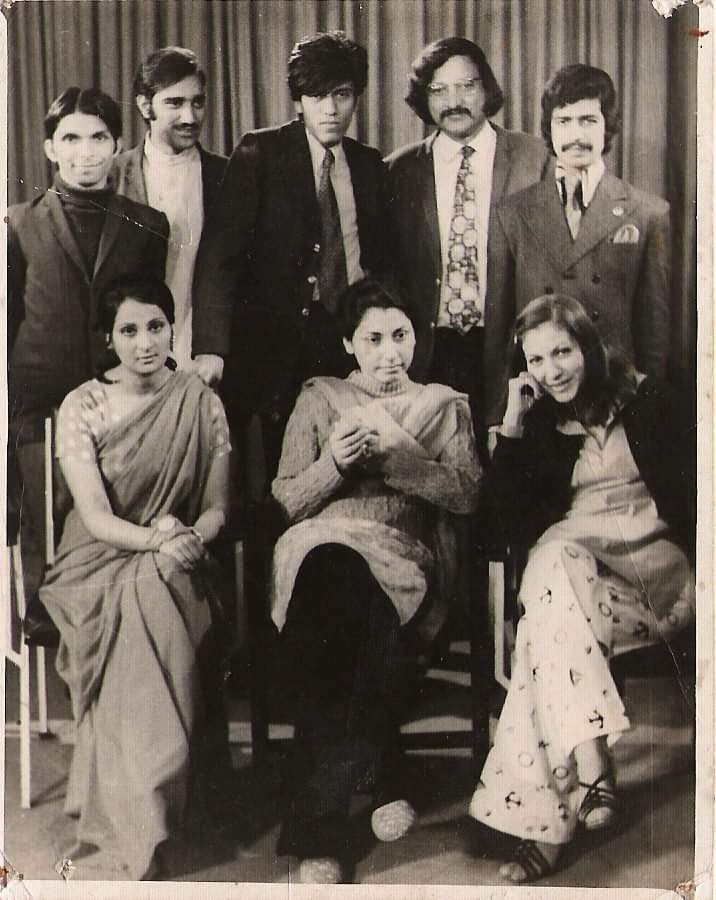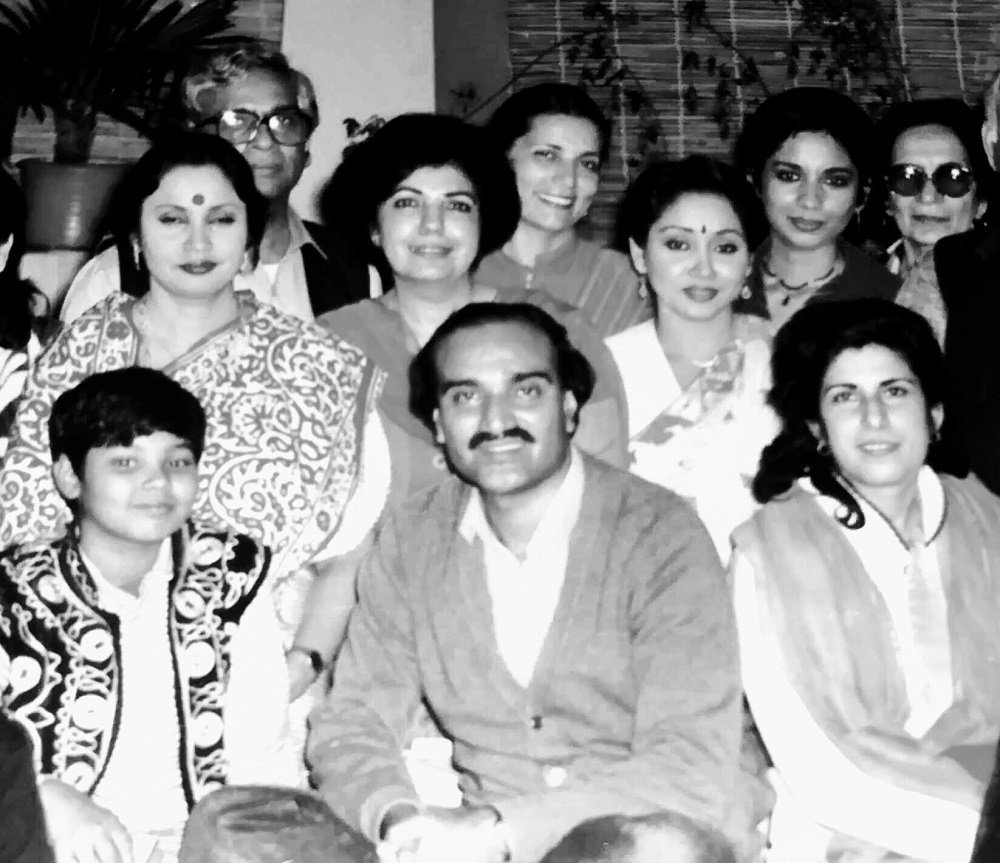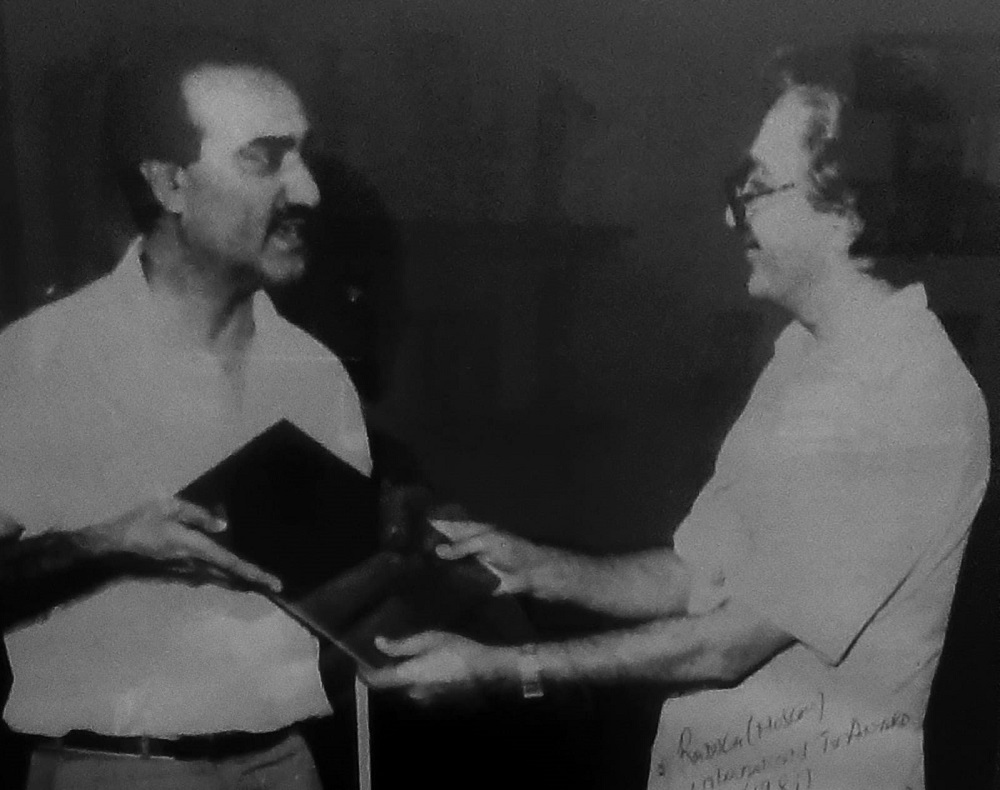Written by: Dr. Dushka H. Saiyid
Posted on: January 21, 2022 |  | 中文
| 中文
(l to r) Mohammed Ali Shehki, Roohi Bano, Khwaja Najmul Hassan and Azhar Lodhi at the 1st PTV Awards 1981, Liaquat Hall.
Youlinmagazine.com has had the privilege of interviewing Khwaja Najmul Hassan about his experience as the Director and Producer of some of the most memorable shows of the all-time great singers of Pakistan. With today’s brief introduction to Khwaja sahib, the series will follow, starting with Noor Jehan on Monday.
Khwaja sahib is a Renaissance man, steeped in our culture, with a taste for music and literature. Pakistan Television was the beneficiary of his talents when he joined it as Producer and Director in 1974. The Lahore of the '60s and early '70s provided a fertile ground for developing his love of music and theatre.

Pervez Musharraf awarded Khawaja Najamul Hassan the President's Pride of Performance in the field of television production in 2005.
He is a product of Cathedral School and the famed Government College, Lahore, to which institutions he recalls taking a double decker bus (a reminder that we had a decent public transport system at the time). His interest in theatre developed under the tutelage of Shoaib Hashmi, who was the President of the Government College Dramatics Club (GCDC), and for whom Khwaja sahib has effusive praise. His peer group and friends consisted of such talented young men as Usman Peerzada, Salman Shahid, the composer Arshad Mahmood and Nayara Noor. Nayara Noor was studying at the National College of Arts (NCA), and was winning all the music talent awards at student competitions. Khwaja sahib and Arshad Mahmood used to visit her at the NCA, and she used to sing while Arshad Mahmood played the guitar sitting under a Banyan tree. This was the time that Mr. Hayat Mohammed Khan’s annual music conference was drawing all the eminent singers to the Open Air Theatre of the Lawrence Gardens, and Khwaja sahib and friends would sit there mesmerized as Roshan Ara Begum’s voice soared to the heavens till dawn broke.

Sitting: (l to r), Sophia Latifi, Zakira Khan, Moneeza Hashmi.
Standing: (l to r), Qazi Raza, Khawaja Najam ul Hasan, Akhtar Viqar Azeem, Syed Najam ul Hasan and Tariq Mushtaq.
He cut his teeth under the leadership of the legendary Chairman and Managing Director of Pakistan Television (PTV), Aslam Azhar. He went with Shoaib Hashmi to meet Aslam Azhar, and introduced himself as having worked with Shoaib Hashmi at the GCDC, and was immediately hired as Director for Shoaib Hashmi’s Tal Matol. Kanwar Aftab, the General Manager of the Lahore Center, advised him to take up producing music shows as eight well-established people were already involved in producing and directing dramas. Khwaja sahib readily agreed.

Firdausi Begum (standing on the left in a sari) visited Pakistan with a group of professional women in the early '80s. Najmul Hassan recorded a mehfil at PTV, Rawalpindi.
At the weekly meeting on Monday, Kanwar Aftab declared that they were going to do a music programme called Taranum on Noor Jehan. He later went on to do direct music programmes on Farida Khanum, Roshan Ara Begum, Iqbal Bano, Musarrat Nazir and Tahira Syed amongst others. Each one of these programmes and series became a classic and earned him plaudits. However, Najmul Hassan’s talent was not restricted to producing music programmes, for he produced Dastango, which ran from 1977-79, and covered such writers as Hijab Imitiaz Ali, Hajra Masroor, Ghulam Abbas and Bano Qudsia amongst others. Agha Nasir who was the Director, Programme Administration at the time, wrote a letter of commendation to Najmul Hassan for the programme. He collaborated with the legendary television drama writer, Haseena Moin, and produced the classic music docudrama Tansen.

Receiving Raduga Folk Television Award, Moscow, for Mood & Melodies by the Chairman of PTV Aslam Azhar, 1989.
He received recognition as a Director by earning innumerable awards for Best Music Director from 1981 onwards at regular intervals, starting with the series on Noor Jehan called Taranum. However, the President’s Pride of Performance awarded in 2005, was the ultimate recognition of a lifetime of excellence in production and direction.
You may also like: